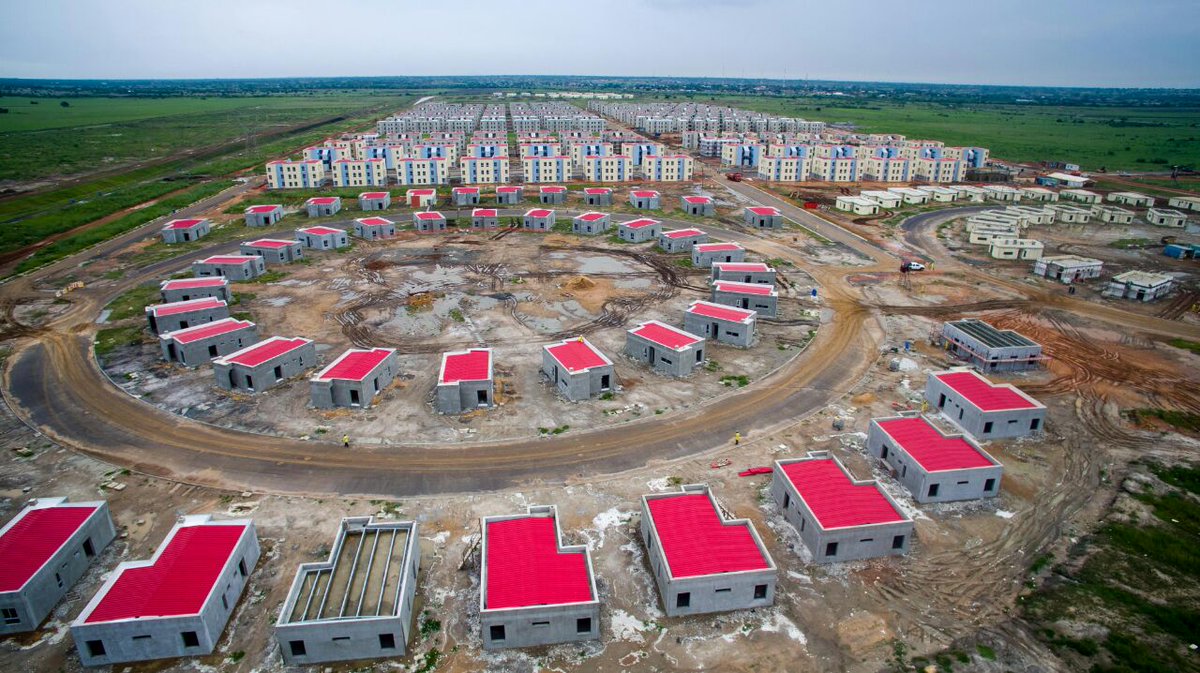The International Monetary Fund’s (IMF) recent endorsement of a $3 billion Extended Credit Facility (ECF) agreement for Ghana is poised to create a significant ripple effect in the nation’s real estate domain. Dubbed the Post COVID-19 Program for Economic Growth (PC-PEG), this initiative strives to reinstate overall macroeconomic stability, tackle debt sustainability concerns, and introduce vital reforms to cultivate robust and inclusive growth.
For many reasons was this loan disbursed and in this article, we will touch on a number of them.
Revamping Macroeconomic Stability
The IMF agreement’s primary objective of reestablishing macroeconomic stability will yield favorable outcomes for investor sentiment within Ghana’s real estate realm. The implementation of various measures, such as fiscal consolidation, stricter monetary policies, and flexible exchange rates, seeks to curb inflation and restore it to single-digit figures, rebuild international reserves, and stabilize the Ghanaian Cedi. These endeavours will contribute to fostering a more predictable economic climate, prompting both local and international investors to perceive the real estate sector as an attractive investment avenue.
Furthermore, the stabilization initiatives outlined in the IMF accord are anticipated to exert a positive influence on Ghana’s mortgage market. As macroeconomic stability is reinstated, an environment conducive to the flourishing of the mortgage industry is established. Additionally, the emphasis placed on fiscal consolidation and stricter monetary policies bolsters the credibility of Ghana’s financial system, thereby enticing both domestic and foreign investors who regard the real estate sector as a secure investment option. This heightened investor confidence has the potential to stimulate greater capital inflows into the market.
What’s in for Developers?
Maintaining stability within the financial sector stands as a pivotal factor in ensuring the success of the reform program. The IMF agreement acknowledges the adverse repercussions of domestic debt restructuring on financial institutions, which impose limitations on funding availability for real estate ventures and the mortgage market. A rising unease surrounds the escalation of payment defaults among individuals and businesses engaged in repayment plans with developers, directly attributed to the debt restructuring initiative. Such defaults possess the potential for a domino effect within the financial sector, impeding developers’ capacity to finalize projects and settle debts. Consequently, this leads to a reduction in credit accessibility and heightens the challenge of securing funding for forthcoming endeavours.

Financial institutions that extended loans to developers may encounter an upsurge in non-performing loans, thereby impacting their overall financial well-being and ability to lend to other sectors. Moreover, amplified defaults bear ramifications for the mortgage market, potentially culminating in foreclosures and eroding confidence in the stability of the financial system, thereby posing a considerable challenge for banks. To mitigate these consequences, it is imperative for authorities to implement a comprehensive strategy aimed at fortifying the resilience of financial institutions, alongside gradually phasing out temporary regulatory forbearance measures.
A Sure Signal for Foreign Investment
An IMF agreement of this scale is poised to capture the attention of foreign investors, signalling Ghana’s unwavering dedication to economic stability and comprehensive reforms. The real estate sector, in particular, stands to gain significantly from foreign direct investment (FDI), as international investors actively seek lucrative opportunities in emerging markets. The provision of financial assistance by the IMF acts as a catalyst in enticing FDI into Ghana’s real estate industry. This influx of foreign capital not only injects vital financial resources but also brings forth valuable expertise, cutting-edge technology, and market insights, thereby propelling the sector’s expansion.

What does this Mean for Housing in Ghana?
The IMF-supported reform program encompasses ambitious structural changes that aim to enhance the business environment, governance standards, and overall productivity. These reforms hold the potential to yield favourable outcomes for the real estate industry, cultivating a more conducive investment climate, mitigating bureaucratic obstacles, and bolstering transparency. The implementation of streamlined tax policies and efficient revenue administration procedures can simplify regulatory processes, facilitating real estate developers and investors in navigating the operational landscape, thus fostering private sector-driven growth within the sector.

Moreover, the comprehensive debt restructuring initiative undertaken by the Ghanaian government, as part of the IMF agreement, tackles pressing financing limitations and unsustainable public debt burdens. The successful negotiation of debt restructuring agreements with external creditors has been instrumental in securing program approval. This debt relief measure will liberate financial resources for the government to allocate towards critical sectors, including initiatives geared towards affordable housing. The IMF deal presents an opportune moment for the government to allocate funds and address this pressing issue by investing in affordable housing programs, such as the construction of low-cost residential units. This strategic move serves to address the housing needs of low-income individuals and families, thereby improving living conditions, fostering social inclusivity, and alleviating the strain on existing housing resources.


May I request more information on the subject? All of your articles are extremely useful to me. Thank you!
Your articles are extremely helpful to me. May I ask for more information?